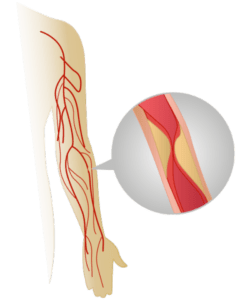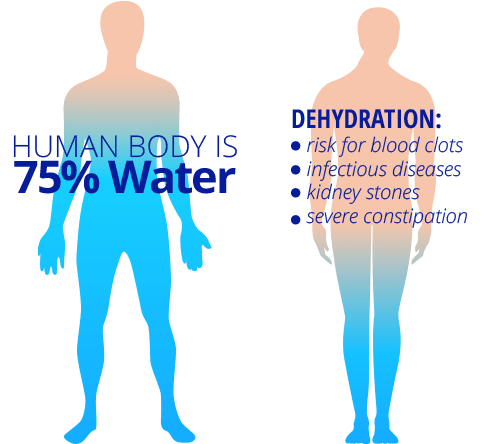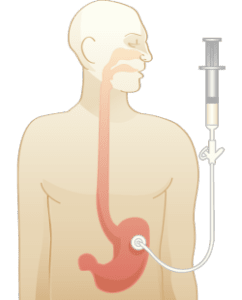Many of us have gotten the message about drinking enough water every day to make sure we stay properly hydrated. But if we were dependent on others for our hydration, as many nursing home residents are, could we count on getting what we need every day to remain healthy?
The sad truth is that the answer is “maybe not.” Many Kentucky nursing home residents suffer from neglect, including the lack of proper hydration.
Dehydration is a lack of water and other fluids required for the body to function normally. Mild dehydration is easily corrected, but severe dehydration can rapidly lead to swelling of the brain, seizures, hypovolemic shock (low-blood-volume shock), coma and death, according to the Mayo Clinic.
The elderly are particularly susceptible to dehydration because of a natural reduction in body water and kidney function, as well as a loss of the thirst sensation, which occur as people age.
Barbara Day, M.S., R.D., C.N., says in a recent article for Kentuckiana Health Wellness that some drugs that seniors routinely take, such as SSRIs, ACE inhibitors and anti-Parkinson drugs, can also suppress thirst.
 Selective serotonin reuptake inhibitors or serotonin-specific reuptake inhibitors (SSRIs) are typically used as anti-depressants or anti-anxiety medication, Day explains. Angiotensin-converting enzyme (ACE) inhibitors help relax blood vessels and are prescribed for high blood pressure, coronary artery disease, diabetes, heart failure and other maladies common among the elderly.
Selective serotonin reuptake inhibitors or serotonin-specific reuptake inhibitors (SSRIs) are typically used as anti-depressants or anti-anxiety medication, Day explains. Angiotensin-converting enzyme (ACE) inhibitors help relax blood vessels and are prescribed for high blood pressure, coronary artery disease, diabetes, heart failure and other maladies common among the elderly.
A Medscape report says severe dehydration among the elderly has been linked to poor mental function and to a significant risk for blood clots, infectious diseases, kidney stones, and severe constipation.
Medscape cites a study of long-term care facilities that found residents to be dehydrated in 50 percent of febrile episodes (fevers) reported, and that 27 percent of long-term care residents taken to hospitals were admitted because of dehydration.
Day, citing a seminar led by hydration expert Ron Maughan, PhD, emeritus professor of Sport and Exercise Nutrition at Loughborough University, says about half of elderly patients hospitalized with dehydration die within a year of admission. Readmission rates due to repeated dehydration are high, as well.

Some of the signs and symptoms of dehydration can be identical to senile dementia symptoms, age dementia symptoms and Alzheimer’s disease symptoms, Day says.
Common indications that a person is dehydrated include:
Less-common symptoms include:
So, as Day suggests, what you may think is the onset of dementia that has occurred as a natural part of aging since your loved one moved to a nursing home may actually be a sign of neglect.
As simple as it sounds, making sure an elderly person drinks water regularly can keep dehydration from occurring or correct mild dehydration if it does occur.
Research cited by Medscape says if elderly patients know they should drink water or fluids to remain healthy, they will if they are able to. The report says verbal prompting between meals has proven effective, as has simply providing enough time at meals to finish drinks that are served. Having drinks readily available throughout the day and providing beverages that residents with cognitive awareness prefer is also helpful.
 Solid foods that contain a lot of water, like fruits and vegetables, is also effective at increasing hydration, particularly among seniors who have a reduced sense of thirst.
Solid foods that contain a lot of water, like fruits and vegetables, is also effective at increasing hydration, particularly among seniors who have a reduced sense of thirst.
Nurses, nursing assistants and other personnel in a nursing home should routinely monitor residents’ activities, including their eating and drinking habits. Medical personnel should know to regularly look for and track nominal signs of hydration, such as skin elasticity, tongue dryness and tongue furrows, and to take clinical measures of blood pressure and heart rate, urinary output, sodium concentrations in urine and tissue tone.

Nursing home residents who are bedridden or too frail or ill to eat or drink may receive fluids through a feeding tube or, preferably, by hypodermoclysis, the infusion of fluids subcutaneously, to remain properly hydrated. This requires a medical diagnosis and prescription, which must be administered in correct dosages and according to the prescribed schedule. The infirm patient’s fluid output and other medical signs must be monitored, as well.
Severe dehydration is a medical emergency for which an ambulance or other medical personnel should be summoned immediately and for which hospitalization and intravenous administration of fluids and salts is likely.
Relocating your loved one to a nursing home is difficult, and we have a guide to help you choose the right nursing home. If you have had to move an elderly loved one to a nursing home, you have done so with the understanding that they will receive proper care, including providing for their daily needs. Nursing homes have a legal obligation to ensure the well being of their residents. While it is understood that elderly people do eventually succumb to the effects of age and illness, nothing done by nursing home staff or the institution should contribute to a resident’s physical or mental decline.
When a nursing home resident’s condition has deteriorated precipitously without an adequate explanation that is clearly stated, it should be cause for concern. If you recognize the symptoms of minor dehydration in an elderly person, you should inquire with supervisory staff and try to get the senior citizen to consume some kind of fluids. If you believe you see signs of severe dehydration, you should summon emergency medical assistance, and then notify the staff.
If you have any misgivings about how a nursing home resident you care about is being treated in a Kentucky or Ohio nursing home, the Becker Law Office can advise you about potential legal action. We investigate allegations of nursing home abuse and neglect to, first, ensure the safety and health of residents who may be in danger and, second, to determine whether the nursing home should be held legally liable for harm to a resident who has been abused or neglected.
Contact us today. We can work to stop your loved one from being harmed and potentially recover compensation for your family’s medical expenses, pain, suffering and more.